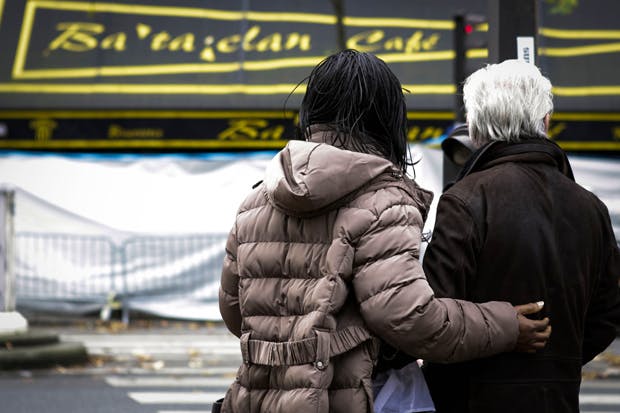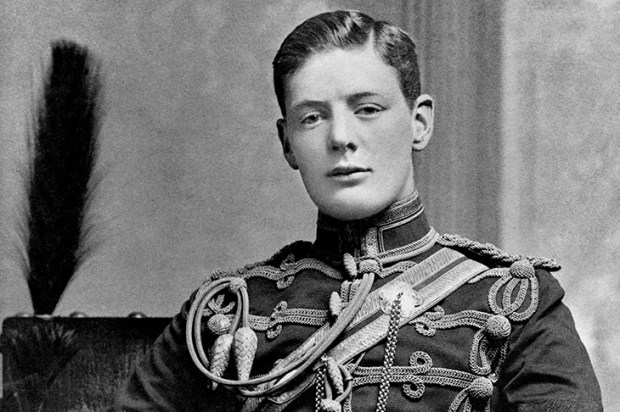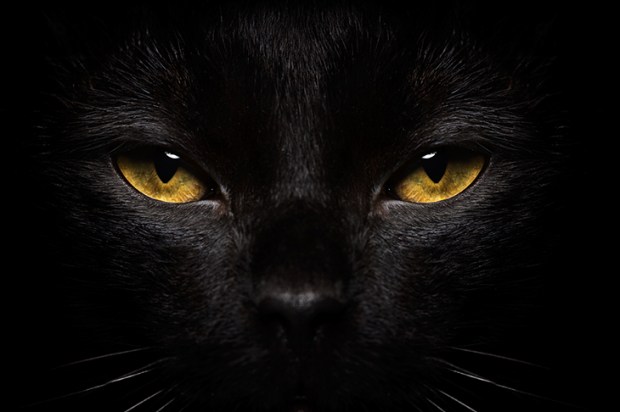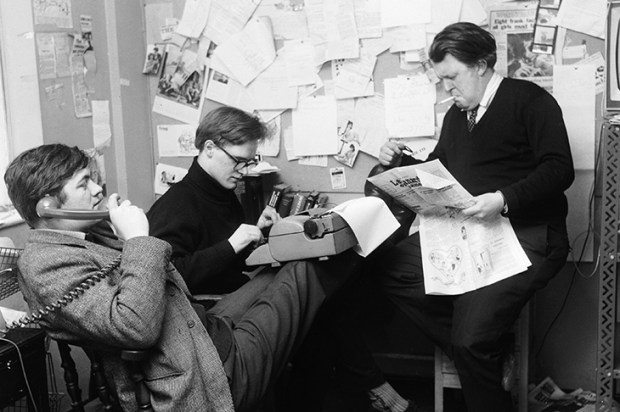Because I used to go to venues like Bataclan an awful lot myself, I’ve been dwelling a great deal on what the fans must have gone through that night. And the conclusion I’ve reached is how utterly random the whole business must have been: whether you survived or died was almost entirely dependent on being at the right or wrong bit at the right or wrong time.
Even the band Eagles Of Death Metal, it turns out, only escaped by the skin of their teeth. The bassist barricaded himself into a room; the singer and guitarist escaped into the street and went briefly back to look for a missing girlfriend only to meet a gunman lowering his assault rifle at them; the drummer crawled out using his drum kit for cover.
I find these details fascinating, perhaps due to morbid curiosity or an overactive imagination. But there’s one empathetic exercise of which I’m utterly incapable — and that’s putting myself in the shoes of those who don’t feel this stuff as viscerally as I do.
For example, the bien-pensant twenty-something French media professionals interviewed in a bar afterwards by Canadian journalist Ezra Levant. Here they were in Paris only one night after young men and women just like them had been shot, stabbed or blown up by people yelling ‘Allahu Akbar’; and all they wanted to do was to apologise on behalf the Muslim community. One asserted that the Quran wasn’t violent; another that only 0.005 per cent of the Muslim population supported terrorism. How many more deaths, you wondered, would it take to dent their complacency? Not 139, clearly. But would 1,390 be enough? 13,900?
We’re often told that progressive types are all heart whereas evil right-wing bastards like me are all about head. But I think it’s more complicated than that. Yes, liberal lefties are indeed capable of summoning raw emotion when considering certain issues: only, though, so long as those issues accord with their predetermined agenda of the things that really matter in the world.
Climate change, for example. According to luminaries such as US Secretary of State John Kerry, Nobel-prizewinning economist Paul Krugman, US presidential contender Bernie Sanders, and possibly even our own Prince of Wales, it represents a greater threat than terrorism. Well, fine. Perhaps it does. So let’s just look at the figures shall we?
In 2014, according to the Global Terrorism Index, 32,658 people were killed by terrorism — a rise of 80 per cent on the previous year. This upward trend seems unlikely to flatten any time soon.
Now let’s look at the number of deaths attributable to ‘climate change’ in the same year. Zero. As it was in the previous year. And in the year before that. The smartarse get-out is that it’s extreme weather events like hurricanes, floods, droughts and so on which kill people, not climate. But the non-casuistic explanation is just as valid: as even the IPCC’s last Assessment Report more or less conceded, the evidence that ‘climate change’ has led to an increase in extreme weather events is slim to nonexistent.
Global warming did not enter the Bataclan theatre with three Kalashnikovs and mow down 80 people. Climate change did not explode 224 Russian holidaymakers over the Sinai. Ocean acidification did not abduct 2,000 Nigerian girls and murder thousands more men. Global climate disruption was not responsible for the massacre of 164 people in Mumbai or 67 people at Nairobi’s Westgate mall. Marginally increased atmospheric concentrations of the harmless trace gas carbon dioxide did not fly two passenger aircraft into the World Trade Center, killing nearly 3,000 people on 9/11. None of this is speculation. This is verifiable, empirical fact.
Which is more than can be said for any of the computer model ‘projections’ that will be cited all this week at the COP21 negotiations in Paris to justify the various swingeing measures we must apparently all adopt if we are to combat ‘climate change’. The longer the scare has gone on, the more dramatically real-world temperature data (as measured by satellite) has diverged from the modelled predictions, 95 per cent of which have over-forecast the warming trend since 1979.
There’s lots more in this vein I could bore you with: from polar-bear populations reaching a 50-year high to the growing ice-mass in Antarctica to the highly suspicious adjustments made to the raw temperature data which have turned a cooling trend into a warming one. Cumulatively, the evidence is overwhelming: the ‘climate change’ scare represents the biggest and most expensive fraud in history. So why are so many people out there so determined to be taken in?
Probably for the same reasons so many are persuaded by the threadbare arguments being advanced to justify why Islam is a ‘religion of peace’ or why Britain should stay a member of the European Union. As I said to the Bruges Group the other day, the way our opponents form their opinions has so little to do with our own evidence-based, logic-driven view of the world that they might almost be a different species.
Indeed, I think they actually are a different species. It’s that same divide W.S. Gilbert identified about every boy and girl alive being born either a little liberal or else a little conservative; and the one that, more recently, The Matrix addressed when it set out the dichotomy between those who prefer the comfortable delusions of the blue pill to the bracing reality offered by the red pill.
One could get very depressed by this. Perhaps one should get very depressed by this. But I prefer to find it a source of comfort that at least half the world’s population are congenitally, hopelessly wrong: at least when they hate me I don’t have to take it personally.
Got something to add? Join the discussion and comment below.
Get 10 issues for just $10
Subscribe to The Spectator Australia today for the next 10 magazine issues, plus full online access, for just $10.















Comments
Don't miss out
Join the conversation with other Spectator Australia readers. Subscribe to leave a comment.
SUBSCRIBEAlready a subscriber? Log in